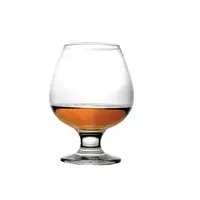Chacha

Who do you think or what is hiding under the interesting and unusual name chacha? The sunny country of Georgia has given the world culinary tradition not a single delicious dish that Georgian chefs have long prepared. However, Georgia is famous not only for its authentic cuisine, but also for excellent alcohol.
Chacha refers to strong alcoholic beverages made by Georgians from time immemorial. According to the classification of alcohol, the chacha drink is referred to as brandy, which is made from various varieties of grapes. Therefore, the taste, aroma and color of chacha are strikingly reminiscent of brandy.
In the world alcoholic culture, there are several more drinks that are surprisingly similar to tea - Italians make grappa or grape vodka, and Bulgarians, Serbs and Croats make the national drink rakiya, which is made from fruits using brandy production technology. It is believed that only chacha produced artisanally or domestically can fully correspond to old Georgian recipes.
However, in our time, industrial production of chachi is well established. For the production of alcoholic beverage, special grape varieties are used, which are strictly regulated by the chachi recipe. Rkatsiteli grape variety from Georgia, Ajar Kachich, as well as the famous Abkhaz wine variety Isabella. Chachu is produced by double distillation of grape juice.
The resulting grape alcohol of unprecedented strength is diluted with water and only then bottled. Real, domestic and therefore "correct" chachu is customary to withstand in barrels of oak wood. Some high-end industrial chacha varieties are also aged in oak barrels.
Remarkably, homemade chacha will bypass the blending process, this drink is never diluted with water, even if its strength reaches up to 80 percent. This is perhaps the second, the main difference after the taste of the store tea from the one that you will be offered to taste in Georgia or Abkhazia. It is the fact that chachu is not diluted with water that helps the drink maintain the initial tart taste of the grapes. True, there is some harm from improperly prepared chachi.
The composition of the drink includes harmful fusel oils, this is primarily due to the production process. In industry, special filters and reagents are used, and at home Georgians and Abkhazians clean chacha with milk and even burnt bones. Not only the recipe for making chacha, but also the way the product is controlled is distinctive and surprising.
The chachi taster does not taste the drink immediately, but tests it in the following way. In a glass with a goblet, the specialist lowers his finger, and then sets it on fire. Cruel method, isn't it? However, the trick is that the chacha completely burns and does not burn the hand. As a rule, chacha drink is consumed in its pure form. Nowadays, chachu can be found among the ingredients of strong alcoholic cocktails.
There is also an old Georgian cocktail with tea. Ice or fruits could be added to a glass of strong 80 degree tea. In ancient times, it was customary for the peasants of Georgia to drink a glass of chachi in the morning before work and eat something sweet. Chacha pleasantly envelops and gives heat to the human body, which is so important in severe weather conditions in sub-zero temperatures. It is still believed that daily consumption of chacha in small quantities (no more than one glass) contributes to well-being and longevity.
chachi 225 kKal
Energy value of chachi (Ratio of proteins, fats, carbohydrates - ju):
Proteins: 0.1 g (~ 0 kCal)
Fats: 0.1 g (~ 1 kCal)
Carbohydrates: 0.5 g (~ 2 kCal)
Energy ratio (bj | y): 0% | 0% | 1%
 Español
Español Français
Français Português
Português Русский
Русский 简体中文
简体中文 繁體中文
繁體中文 日本語
日本語 한국어
한국어 العربية
العربية Türkçe
Türkçe Қазақ
Қазақ Deutsch
Deutsch Italiano
Italiano Українська
Українська
